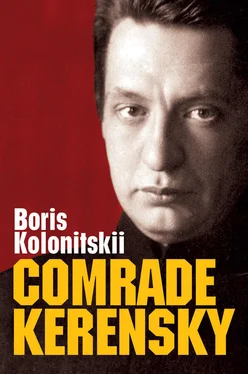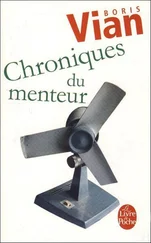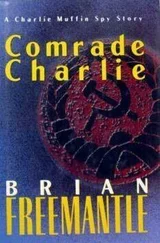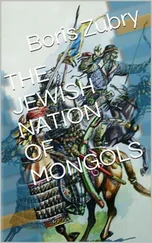Many people have taken an interest in my work, and there are many I need to thank for their help.
Alexey Miller and Vladimir Chernyaev were the benign, interested and critical readers of this book, and their comments and advice were exceptionally important for me.
Different versions of chapters, and subsequently the book in its entirety, have been discussed at meetings of the History Faculty of the European University at St Petersburg and the Department of the History of Revolutions and Social Movements of the St Petersburg History Institute of the Russian Academy of Sciences. I am grateful to Tamara Abrosimova, Alfrid Bustanov, Boris Dubentsov, Mikhail Krom, Vladimir Lapin, Nikolai Mikhailov, Anatoly Pinsky, Natalia Potapova, Pavel Rogoznyi, Yuliya Safronova, Nikolai Smirnov, Konstantin Tarasov, Igal Halfin and Samuel Hirst, who made valuable contributions in these discussions.
Dietrich Beyrau, I. F. Danilova, Victor Kelner, Louise McReynolds, Jan Plamper and Valeriy Sazhin all read chapters of the book, and their advice and comments have been a great help. Collaborating with Murray Frame, Melissa Stockdale and Steven Marks on editing a volume in an international project on the history of the First World War and revolution in Russia taught me a great deal. The advice of the other project participants, notably Anthony Heywood, David McDonald, John Steinberg and Christopher Read, was very helpful.
At various stages in my research I have presented my results at conferences and colloquia. The comments of Vladislav Aksyonov, Jörg Baberowski, Vladimir Buldakov, Ziva Galili, Klaus Gestwa, Katharina Kucher, Daniel Orlovsky, Mark Steinberg, Tanja Penter, Orlando Figes, Jutta Scherrer, Ingrid Schierle and Laura Engelstein were very important. I discussed many aspects of my research with William Rosenberg and was constantly aware of his support.
My consultations with Alla Lapidus, Irina Lukka and Olga Novikova were extremely useful. Dmitry Aziatsev, Vladislav Aksyonov, Alexander Astashov, Mikhail Bezrodny, Marina Vitukhnovskaya, Alexey Gnoevykh, Konstantin Godunov, Alexander Danilevsky, Ilia Doronchenkov, Boris Kotov, Alexander Medyakov, Andrey Nikolaev, Margarita Pavlova, Pavel Rogozny, Nikolai Rodin, Alexander Sokolov, Konstantin Tarasov, Yana Guzey, Yelizaveta Zhdankova, Ella Saginadze and Alexander Reznik all helped me to assemble materials.
Topics which subsequently morphed into paragraphs of the book were discussed in seminars attended by Felix Yakubson, Viktor Voronkov, Vladimir Gelman, Yelena Zdravomyslova, Maria Matskevich, Andrey Stolyarov, Dmitry Travin and Sergey Shelin. Remarks by sociologists, political scientists, journalists, writers and directors gave me a different perspective on my research.
My administrative experience as a provost of the European University at St Petersburg gave me new insights into political history, and my conversations with the university’s rector, Professor Oleg Kharkhordin, constantly stimulated me to reflect on the practical application of political philosophy.
I am grateful to Victor Pleshkov, Nikolai Smirnov and other members of the administrative staff of the St Petersburg Institute of History of the Russian Academy of Sciences for their unfailing support.
I thank the senior staff of the European University at St Petersburg for granting me sabbatical leave, which gave me the opportunity to concentrate on this research project.
The support of the Kone Foundation and the Helsinki Collegium for Advanced Studies at the University of Helsinki enabled me to work in Finnish libraries and archives in 2013.
A grant from the German Research Foundation (Deutsche Forschungsgemeinschaft) and the support of the Institute for Eastern European History at the University of Tübingen gave me the opportunity to work for three months in German libraries in 2016.
I thank Irina Zhdanova and Anna Abashina, who edited this book, for their advice and comments.
I am constantly conscious of the support of my wife. ‘If my husband is looking out of the window, that does not mean he is not working,’ Katya will sometimes tell people. I am proud that, after some entirely understandable doubts, she has come to this view. Moreover, she has sought, if not always successfully, to defend my card indexes from the onslaught of our granddaughters, Faina and Taisia. I am, of course, gratified that the youngest members of my family are showing so much interest at such an early age in my old-fashioned research laboratory.
As my work on this book was nearing completion, my thoughts were constantly turning to Rafail Ganelin, who died in 2014. He was a most remarkable researcher and a wise person who did a great deal for generations of historians of Leningrad/St Petersburg. I am one of those he helped, and without his support my academic career would have been different. His advice saved me from many errors and blunders. I dedicate this book to the memory of Rafail Sholomovich Ganelin.
George Buchanan, the British ambassador, heard a Russian soldier remark during the revolution, ‘Oh, yes, we must have a Republic, but we must have a good Tsar at the head.’ Buchanan regarded this pronouncement as an oxymoron and saw it as confirmation of the view he had formed of his host country’s curious political culture: ‘Russia is not ripe for a purely democratic form of government …’ 1
Analogous statements by simple people are quoted in the diaries of other foreigners. 2They are eager to present Russia as even more exotic than it was, and evidently the desire of its inhabitants for a democratic republic with a good tsar bolstered their case. Military censorship reports also quote soldiers’ letters along the same lines: ‘We want a democratic republic and a father-tsar for three years’; ‘It would be good if we were given a republic with a practical tsar’; ‘The tsar has been toppled from his throne, now there’s a new government, that’s all right, fine, no bother, and when they choose a new tsar, a good one, it will be even better.’ One censor concluded, ‘Almost all the letters of peasants express a desire to see a tsar leading Russia. Monarchy is evidently the only mode of governance they can imagine.’ 3
It is hardly likely that all these peasants and soldiers were staunch monarchists. They had said they wanted to limit the tsar’s term in office. They were anticipating he would have to seek re-election. Rather, we may suppose they saw the concepts of ‘state’ and ‘tsardom’ as synonymous. They struggled to picture a sovereign state without a sovereign, a strong head of state. Not a few soldiers refused to swear allegiance to the Provisional Government, because the very mention of ‘the state’ in the wording of the oath was regarded as endorsing monarchism. They shouted, ‘We don’t have a sovereign state, we have a republic.’ 4
We may, however, surmise that the soldiers aspiring to a democratic republic with a good tsar did in fact want to see a presidential republic established whose head of state would be endowed with extensive powers.
They could not give a precise formulation of their ideal system of government, for the simple reason that they lacked the necessary technical language. They did not know how to describe their ‘authoritarian republicanism’. It was not only poorly educated people who experienced difficulty in translating their ideals into the language of contemporary politics: the same was true of such groups as professional army officers who had cultivated an apolitical stance before the revolution. Indeed, even those who concerned themselves with politics could not always find the right vocabulary to characterize an unfamiliar and rapidly changing reality. 5
These examples give a sense of just how complex was the situation in which the former subjects of the tsar, now citizens of a new Russia, found themselves. The political messages being targeted at them needed to be translated, and this led to the appearance of a host of ‘political dictionaries’, which were greatly in demand.
Читать дальше









